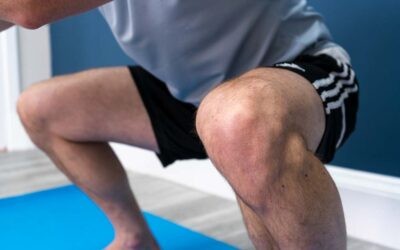How headaches could be a symptom of neck pain?
Headaches that originate from neck pain are one of the most common type of headaches. They can occur at any age but most commonly present in patients between the age of 20 and 60. The pain associated with this condition is an example of referred pain. This is where pain arises from a different source, in this case the neck. This means that the joints and muscles in the neck are all capable of referring pain into your head. Whether this is the back, side, from the top of your head the pattern of your headaches gives physiotherapists clues as to where the pain is originating and how to solve your headaches.
Every day in the clinic I hear of patients living with headaches which could have been resolved months or years ago had they received the right intervention. Often people don’t associate physiotherapy with headaches instead they go to the doctor who prescribes medication and try to limit the symptoms. This may help in the short term but if the issue causing the headaches is not resolved the only outcome is more pills, more medication and more side effects to these drugs.
Your vertebrae connect right up to the base of your skull. These upper vertebrae (the top half of your neck) support the weight of your head and are responsible for allowing you to bend, flex and rotate your neck. Your head is a lot heavier than most people appreciate.
Dysfunction and pain originating from these joints can limit your range and fluidity of movement and irritate the nerves surrounding that area.
Placing excessive strain on these joints in the neck either through an injury such as whiplash or from sustained poor posture or repetitive activity which causes ‘damage’ over time can result in irritation of the nerves. The small muscles at the base of your skull are also extremely sensitive and if these are overloaded or asked to do too much of the work, then neck pain and/or headaches is a common outcome. Taking medication will reduce the output of pain but it won’t resolve the underlying issue.
The nerves that supply the upper neck also supply the skin over the head, forehead, jaw line and back of the eyes and ears and can therefore refer the pain to these areas too, causing a cervicogenic headache. A fancy name for a headache originating from the neck.
WHAT CAUSES THESE HEADACHES?
Activities placing excessive stress on the upper joints of the neck:
🔵 Whiplash or heavy lifting.
🔵 Repetitive or prolonged slouching, poor posture lifting or carrying (especially in poor posture).
🔵 Excessive bending or twisting of the neck working at a computer or activities using the arms in front of the body (housework).
WHAT ARE THE SYMPTOMS?
Your neck may not be sore but you may still experience cervicogenic headaches. Treatment plans are different for different headache types so diagnosing correctly is important. Indicators that your headache might be being caused by referred neck pain are:
🔵 Gradual onset of neck pain and headache during an activity that irritates the neck structures.
🔵 Constant dull ache, normally at the back of the head.
🔵 Stiffness and difficulty turning the neck.
🔵 Pain that’s made worse by neck movement or posture.
🔵 Neck pain or tenderness over the upper cervical joints.
🔵 Although less common pain, pins and needles or numbness may also be felt in the upper back, shoulders, arms or hands.
WHAT CAN I DO ABOUT HEADACHES?
Living with persistent or intermittent neck pain and the headaches that can be a consequence, impact your health and your mood.
Although this type of headache may respond to medication, if the origin of the headache is not being treated it is likely the headache will return in time. Despite the pain being in your head your treatment should focus on strengthening and increasing mobility in the neck.
Taking a thorough look at your lifestyle, movements and posture and deciding where improvements can be made is a great start.
Here at Optimal there are a number of things we can do to help. We can look at your posture and work environment, your own injury experience, history and presentation to create a treatment plan that will alleviate your pain, improve strength and mobility and prevent further recurrences in the long term. This has to be a personalised and tailored approach rather than a one-size fits all method.
To learn how physiotherapy could help you, why not book a FREE online 15 minute fit for physio appointment with one of our experienced team to discuss your symptoms and make a plan for recovery.
You can book online or call Ayesha or Kirstie to discuss your needs – 0333 301 0205.


0 Comments